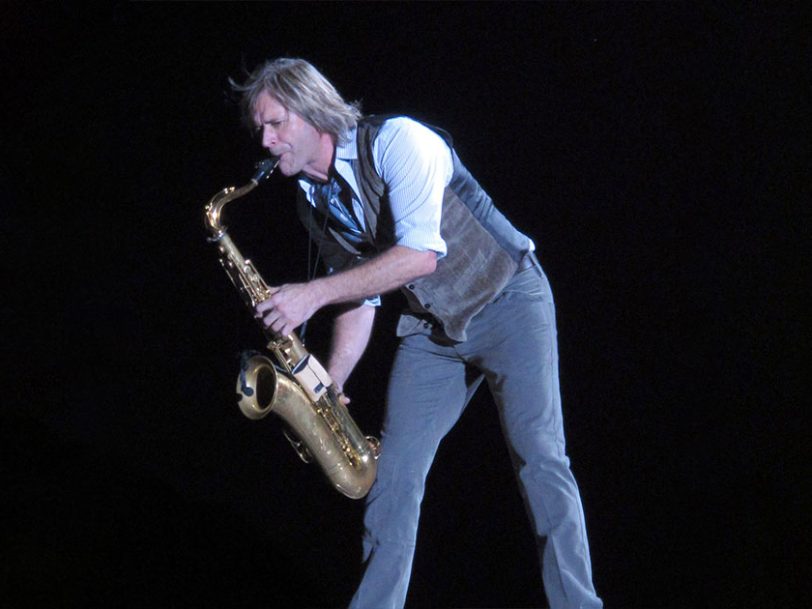The significance of the hit song True – Spandau Ballet’s signature track and a bone fide classic – took some time to build. Recorded in sessions at Compass Point, Nassau, The Bahamas, at the end of 1982, it wasn’t even its parent album’s first single. “We put it at the end of the record and didn’t think it was our best track,” Spandau Ballet’s saxophonist and co-founder Steve Norman reveals to Dig! “It was just this ballad… but I do recall a moment in the control room where we were all listening to a tape of the recording and singing along to it.
“It has become my signature now,” he says. “None of us in Spandau Ballet can ever really escape True. Nor would we want to. We used to get a bit bored of it in the mid-80s, but not now. It always uplifts the crowd and I love playing it.”
Listen to the best of Spandau Ballet here.
“I’m coming to it afresh”
True is certain to get an airing during any Spandau Ballet-related event, including Norman’s upcoming Journeys To Glory Tour, which kicks off on in Wokingham on Friday, 30 September, and will continue through to Monday, 31 October, but the multi-instrumentalist is also using the tour as an opportunity to delve deeper into his back catalogue by celebrating the 40th anniversary of Spandau Ballet’s breakthrough debut album, Journeys To Glory. Accompanied by his five-piece band, The Sleevz, which also features his son Jaco on bass, Norman will play the entire album, including its classic singles To Cut A Long Story Short (Spandau Ballet’s first Top 5 UK hit), The Freeze and Muscle Bound.
“The last time I looked at Journeys To Glory was a few years back and it struck me how weird it is that The Freeze doesn’t follow To Cut A Long Story Short in the running order,” Norman says. “We played both those songs a lot as Spandau Ballet, but no one has performed the whole album like this. I’m coming to it afresh.”




